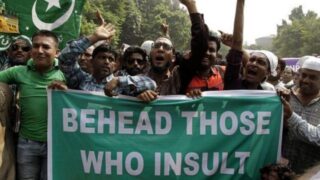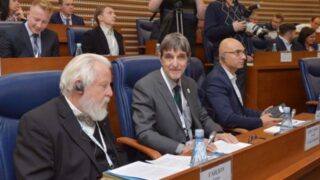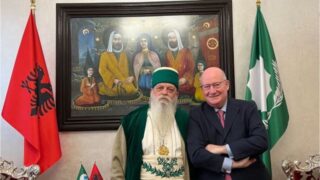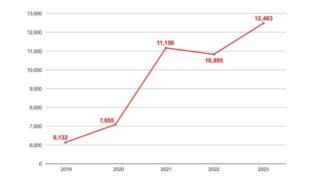Two well-written reports highlight the systematic persecution of religious minorities by the Putin regime, and its crimes against religion in Ukraine.
by Massimo Introvigne
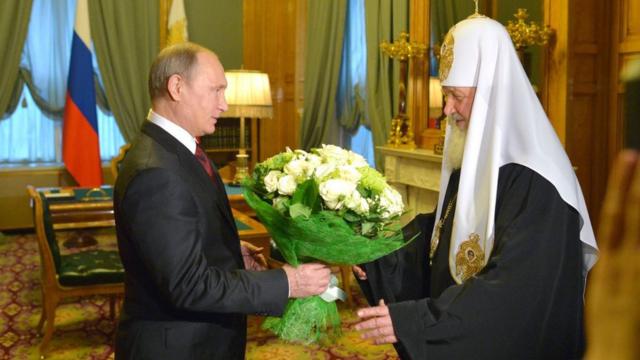

The USCIRF is an independent, bipartisan U.S. federal government commission created by the 1998 International Religious Freedom Act (IRFA). Its Commissioners are appointed by the President and by Congressional leaders of both political parties.
On July 5, the USCIRF released two new reports, one on “Religious Freedom Conditions in the Russian Federation,” and one on “Russia’s Religious Freedom Violations in Ukraine.” Both evidence a serious deterioration of religious liberty in Russia and in the occupied regions of Ukraine after the war of aggression started in 2022. We express our gratitude to the USCIRF for the quotes of “Bitter Winter” as a trusted source of news on Russia, and much more for having produced two thorough and well-written reports.
Noting that “Over time, the Russian government has granted special recognition and privileges to the Russian Orthodox Church of the Moscow Patriarchate, which has contributed to the development of an environment hostile towards other religious groups,” the report on Russia describes the increasingly harsh applications of the existing laws against proselytization and extremism, and the continuing persecution of Jehovah’s Witnesses, followers of the Kazakh esoteric movement Allya Ayat, and many others. The report notes the decisions of the European Court of Human Rights (ECHR) censoring Russia for its attitude towards both Jehovah’s Witnesses and Allya Ayat. However, Russia walked out of the ECHR system and ignores its decisions.
After the 2022 aggression against Ukraine, the number of religious organizations declared not “extremist,” but “undesirable” grew, including in particular several Evangelical churches, and the laws were amended to make any participation in the activities of an “undesirable” organization a crime. Laws on national security and “traditional values” were also amended, allowing for the persecution of numerous religious organizations, often guilty only of proselytism among Russian Orthodox believers or of refusing to support and spread Putin’s propaganda against Ukraine and the West.
The report concludes that “Russian authorities continue to engage in severe religious repression and have used its war in Ukraine to institute new or amend existing legal mechanisms to further suppress religious communities and decimate independent civil society.” It also mentions that “In 2021, the State Department for the first time designated Russia as a Country of Particular Concern [for violations of freedom of religion or belief] and redesignated it in 2022 for its violations committed in both Russia and Ukraine, including Russian-occupied Crimea.”


The second report, on Ukraine, states that “Since Russia launched its full-scale invasion of Ukraine on February 24, 2022, its military has dismantled religious life and stifled religious diversity throughout other parts of Ukraine [in addition to the Crimea and Donbas territories occupied since 2014]. On the frontlines of the war, Russian artillery and military forces frequently damaged and destroyed religious buildings and other sites and killed or injured those sheltering or worshiping in these places. In areas under Russian control, de-facto authorities have abducted and tortured religious leaders and enforced the same repressive Russian legal mechanisms that were instituted in Crimea and Donbas [since 2014]. Furthermore, official Russian state discourse justifying and supporting the war has frequently resorted to rhetoric demonizing Jews, distorting the Holocaust, denigrating ‘non-traditional’ religious groups and the LGBTQI+ community, and characterizing Russia’s unprovoked war of aggression in Ukraine as justified based on religion.”
In Crimea, Jehovah’s Witnesses have experienced the same persecution they encounter in Russia. “Crimean Tatars, who fiercely oppose Russia’s purported annexation of Crimea, have faced some of the harshest repression.” In Donbas, Evangelical pastors have been kidnapped. Since the war started in 2022, nearly five hundred places of worship have been destroyed, with those belonging to religious minorities purposely targeted.


Looting religious artifacts is also a problem. “In October, Russian soldiers reportedly stole the bone fragments of Prince Grigory Aleksandrovich Potemkin from St. Catherine’s Cathedral in Kherson. The prince had played a pivotal role in the Russian Empire’s 1783 annexation of Crimea and was the imperial founder of Kherson. Members of Mariupol’s exiled city council claimed that Russians had stolen 2,000 artifacts from the city’s museums, including a handwritten Torah scroll and a 200-year-old Bible.”
The war has been justified by Russian propaganda with false religious arguments, including some with anti-Semitic overtones, arguing alternatively that Ukraine and its government are dominated by a Jewish lobby, “cults,” “Satanists,” or “Nazi neo-pagans.” The Russian Orthodox Church has often depicted the war of aggression as a holy war and a crusade.
In conclusion, “Russia continues to be the most significant threat to religious freedom in Ukraine, contributing to USCIRF’s 2023 recommendation that the U.S. Department of State continue to designate the Russian Federation as a ‘country of particular concern,’ or CPC, for engaging in systematic, ongoing, and egregious violations of religious freedom.”


